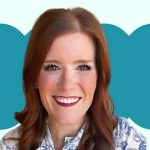In this ever-changing world, no industry remains untouched by the ripple effects of the COVID-19 pandemic, not least the speaking industry. I had the opportunity to gather insights from Sheldon Senek, President of Eagles Talent, Shawn Hanks, CEO of Premiere Speakers Bureau, Kris Campbell, VP Speakers & Entertainment at Heroic Productions, and now, Michelle Joyce, Founder of Michelle Joyce Speakers. Their perspectives offer a comprehensive picture of the evolving challenges and opportunities within the industry. And since I partner regularly with speaker bureaus as a highly experienced speaker, it was enlightening and exciting to learn about their take on the future.
Harnessing Opportunities in the New Normal
Each of our experts identifies opportunities emerging from the post-COVID landscape. Sheldon Senek emphasizes the need for bureaus to provide a range of virtual and hybrid offerings, echoing Michelle Joyce’s belief in the potential of these new modes of delivery. Joyce goes a step further, noting that the pandemic’s acceleration of virtual adaptation has opened up fresh revenue streams.
Kris Campbell, much like Senek, highlights the influx of new thought leaders in the field, marking a period of exciting rejuvenation in terms of content. Also, both Campbell and Joyce underline the importance of bureaus keeping up with fresh, topical content demanded by today’s audience.
On the contractual front, Senek, Joyce and Campbell acknowledge the pandemic’s revelations about holes in contracts, clauses and terms, pointing to the necessity and opportunity to solidify terms and mitigate future risks.
Rising to Challenges: The Post-COVID Reality
While the opportunities are numerous, the challenges are equally compelling. Kris Campbell, Sheldon Senek, and Michelle Joyce all express concerns about the technical adaptation necessitated by the shift to virtual and hybrid events. As Joyce explains, sourcing, reviewing, and trusting talents who can excel in these new formats is a daunting task.
Shawn Hanks adds to this conversation by flagging the increasing trend towards exclusivity in speaker contracts, which introduces both opportunities and challenges. Michelle Joyce, meanwhile, brings attention to a crucial issue – changing price expectations. In the wake of the pandemic, many speakers offered more for less, setting a financial precedent that needs careful navigation.
The move towards virtual and hybrid presentations is a central theme echoed by all our experts. Michelle Joyce aptly points out that these formats, while creating new revenue opportunities, require different sales approaches. Sheldon Senek and Kris Campbell reinforce this view, emphasizing the importance of mastering the nuances of these new methods to achieve successful outcomes.
Speaker-Bureau Dynamics: Building Effective Partnerships
In the face of these changes, the relationship between speakers and bureaus becomes even more critical. Michelle Joyce and Kris Campbell both stress the value of trust and strong partnerships.
According to Joyce, “The best way for a speaker to approach a speakers bureau is through a trusted referral.” A third-party recommendation offers a solid foundation upon which a bureau can build a relationship with a speaker. It underscores the speaker’s credibility and competence, giving the bureau the confidence to represent them.
Trust is not only established through referrals but also through speakers demonstrating their value. According to Joyce, getting “great reviews from clients” is a powerful way to gain a bureau’s attention. This implies not only mastery of their subject matter but also the ability to engage an audience and deliver a memorable experience.
Campbell, too, highlights the importance of working in close partnership with bureaus. She suggests that speakers “always be ready to offer [bureaus] current publications, case studies, books, success stories testimonials and video from recent client events.” This proactive approach demonstrates a speaker’s commitment to their craft and provides bureaus with tangible evidence of their proficiency.
But beyond proving their value, speakers should also be invested in helping bureaus succeed. As Campbell puts it, speakers need to understand and align with bureau agents during the sales process. This could mean preparing and delivering specific materials that help agents make a compelling case to their clients or being available to answer any questions that agents might have about the speaker’s expertise and speaking style.
This mutual commitment to one another’s success fosters a sense of partnership. By being “easy to work with” and by showing a readiness to “make the bureau agent look amazing for pitching you to their clients,” speakers position themselves as valued partners rather than mere service providers.
Looking Ahead: The Future of Speakers Bureaus
Despite the challenges posed by the pandemic, all four experts voice their optimism about the future of speakers bureaus. Sheldon Senek, Shawn Hanks, Kris Campbell, and Michelle Joyce agree that bureaus’ roles as trusted advisors will continue to be invaluable, providing clients with the assurance they need in a rapidly changing landscape.
In conclusion, while each of our experts offers a unique perspective, their insights underline the resilience of speakers bureaus and their capacity to adapt in this new era. The post-COVID world offers an opportunity for speakers bureaus to innovate, collaborate, and continue delivering voices that guide us through these unprecedented times.
Read the full article here










